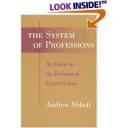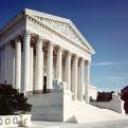 No doubt every legal blogger in the US is going to say something about the fact that today, April 15, is the annual due date for personal income tax filings in the US (it’s also the date on which Wordsworth found his inspiration for I Wandered Lonely As A Cloud, but there’s not nearly as much to say about that.)
No doubt every legal blogger in the US is going to say something about the fact that today, April 15, is the annual due date for personal income tax filings in the US (it’s also the date on which Wordsworth found his inspiration for I Wandered Lonely As A Cloud, but there’s not nearly as much to say about that.)
We like tax law, because it’s complicated and geeky. It’s also a place where the public frequently comes face to face with the law — Amazon lists over 68,000 books with the words “income tax” in the title. And it’s a longstanding arena for disputes over professional jurisdiction between lawyers and other groups (like accountants, for instance, or financial planners). Those things alone would make tax more than usually interesting. But let’s start with the numbers:
- Title 26, the Internal Revenue Code, is the most structurally complex part of the US Code. It is not the largest in terms of sheer bulk — that honor goes to Title 42 (Public Health and Welfare). But there are some 2138 sections organized into 656 hierarchically arranged containers (chapters, subtitles, and so on) using a 5-level scheme.
- It’s a busy little devil. Right now we show 757 changes in Title 26 entered into the Classification Tables since Jan. 1 of 2006, with the most recent posted last Friday.
- Tax-code traffic accounts for about 17% of our traffic for the US Code during the last month, or about 572,000 page views. Curiously, the traffic follows a regular weekly cycle and has not increased much as the filing date approaches.
Popular linking destinations within the tax code include:
- 26 US 7343 , which defines the term “person” as it’s used in describing criminal penalties for tax evasion (thus presumably saying something about who’s going to jail…)
- 26 US 2036, which has to do with estate tax, somehow
- 26 US 7201, which defines the penalties for tax evasion.
But that’s all the really boring stuff. The tax code is…well, it’s unique. More than any other chunk of law we can think of, it’s created a language of its own. We say things like “it’s a Subchapter K”, or “we’re forming a 501(c)(3)”, and people who are not tax lawyers have some idea what they’re talking about. It also holds a prominent place in many systems of what we guess you’d call “alternate jurisprudence” — the beliefs of those who, like militia groups, see something fundamentally different when they look at the way the US is governed. The IRS deals with many such arguments on its page debunking a number of claims by tax protesters; it’s one of our favorite pieces of public legal information. Wikipedia strongly distinguishes between tax resisters and tax protesters — a valid distinction we confess we hadn’t thought about, but probably also one of those places where Wikipedians have agreed to disagree. You can find other debunking pages linked from the Wikipedia articles.
All in all, a lot of things to distract you from the fact that you forgot to file that extension….
 It is from numberless diverse acts of courage and belief that human history is shaped. Each time a man stands up for an ideal, or acts to improve the lot of others, or strikes out against injustice, he sends forth a tiny ripple of hope.
It is from numberless diverse acts of courage and belief that human history is shaped. Each time a man stands up for an ideal, or acts to improve the lot of others, or strikes out against injustice, he sends forth a tiny ripple of hope.






 Find out just what any people will quietly submit to and you have found the exact measure of injustice and wrong which will be imposed upon them, and these will continue until they are resisted with either words or blows, or with both.
Find out just what any people will quietly submit to and you have found the exact measure of injustice and wrong which will be imposed upon them, and these will continue until they are resisted with either words or blows, or with both. April 14th:
April 14th: According to the
According to the  An act which is immoral because it is illegal; not necessarily illegal because it is immoral. See, e.g.
An act which is immoral because it is illegal; not necessarily illegal because it is immoral. See, e.g.